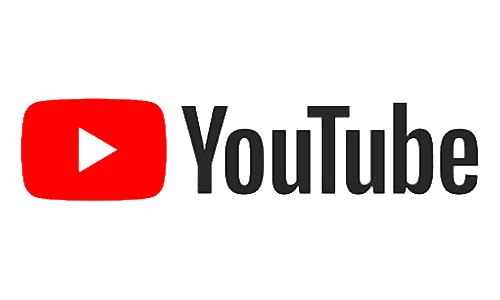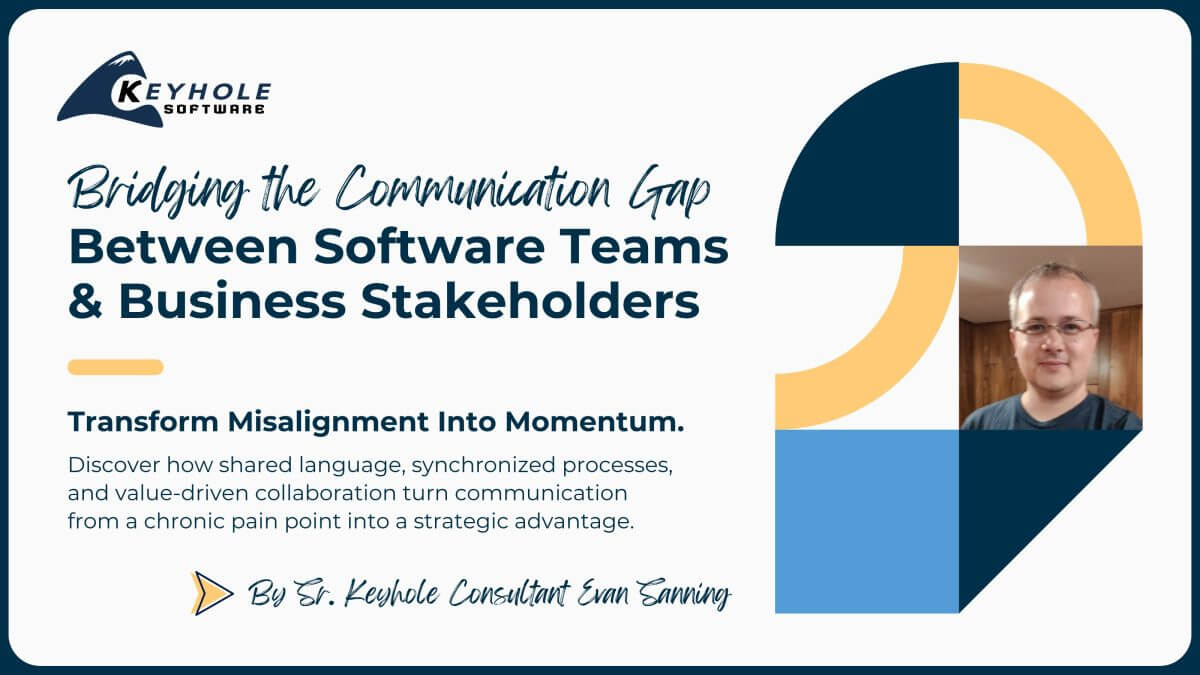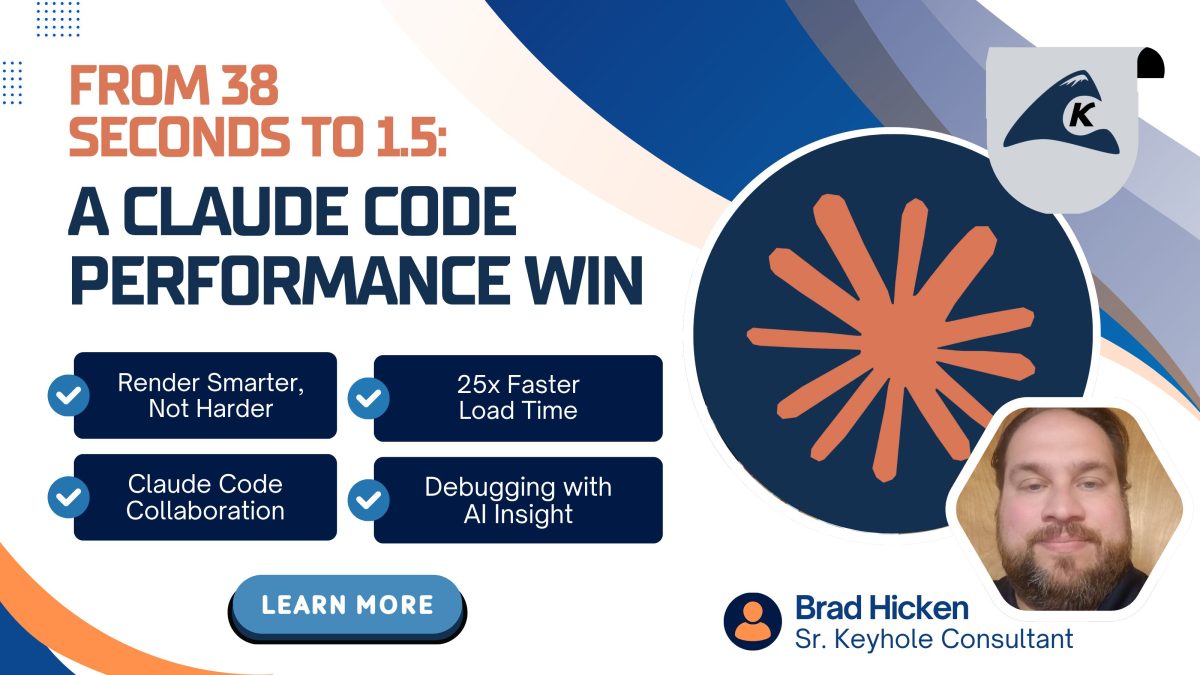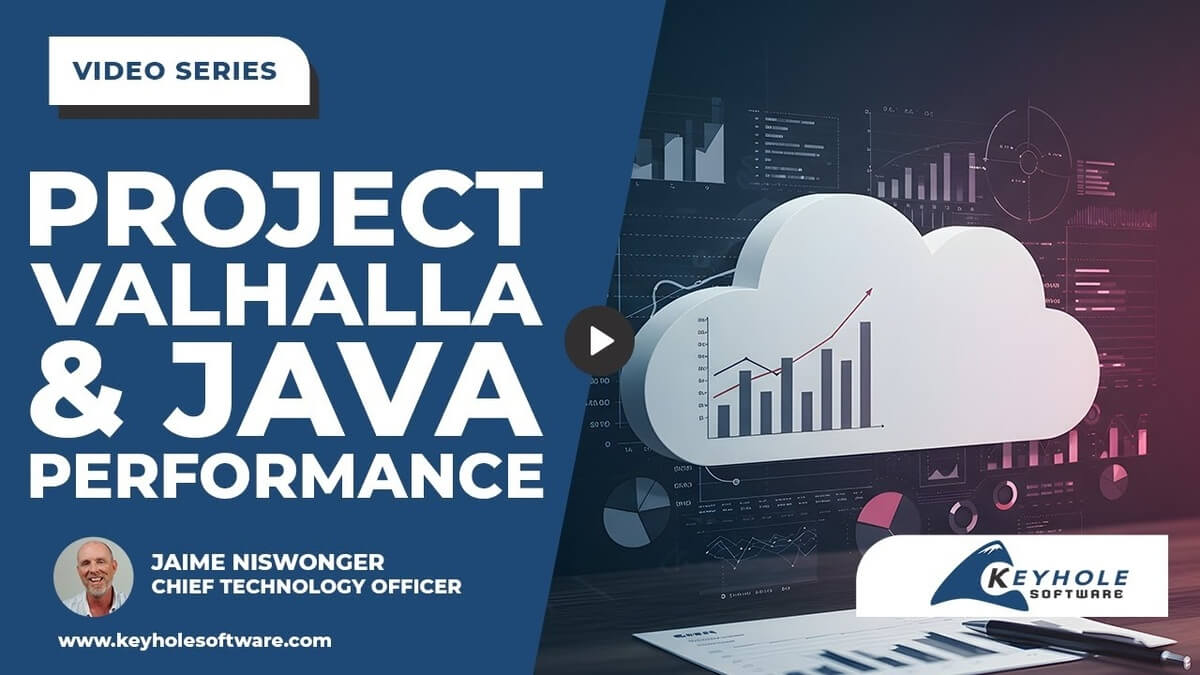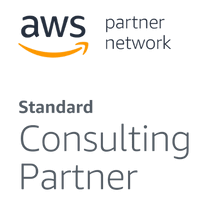Today on Generative AI In The Enterprise, Zach welcomes Dale Thomas, the Founder of ActionableOps. Maybe he picked it up back in his days working in Seattle’s music scene, but Dale has always had sort of a punk rock mentality. He gets after it, teaches himself what he needs to know, puts in the hard work, and does whatever it takes to get his goals off the ground.
That’s exactly the approach Dale takes in his personal and professional life, including his work on ActionableOps, a data-driven company that provides businesses with a wide range of AI-powered solutions for operational excellence. Zach and Dale talk a little bit more about Dale’s journey in founding and growing ActionableOps and where Generative AI fits into his success.
As a bonus, Dale is giving listeners a discount code for one of his favorite AI tools, TextCortex. Use code ActionableOps30 for 30% off your first 3 months. (Please note that Keyhole Software is in no way affiliated with ActionableOps or TextCortext AI.)
View This Episode On:
- YouTube: https://youtu.be/fa42Y4ZHVGY
- Apple Podcasts: https://podcasts.apple.com/us/podcast/dale-thomas-founder-of-actionableops/id1730289289?i=1000650480391
- Spotify: https://open.spotify.com/episode/7v2UUoPQ3uaj5oZkTRnYKy?si=1d42c8bd08094ba3
- … or wherever you get your podcasts!
About Guest Dale Thomas:
Dale Thomas is a strategic operations executive with a proven track record of driving revenue growth and increasing profitability for businesses and startups. His data proficiency and ability to leverage cutting-edge data analytics and AI tools enable him to streamline operational processes, reduce costs, and drive sustainable profit growth for businesses.
Currently, Dale serves as the Head of Operations at ActionableOps. ActionableOps is a data-driven company that provides businesses with a wide range of AI-powered solutions for operational excellence. They offer services such as the OPTIMA Framework, which is a comprehensive assessment of current operations, and Actionable Data Intelligence, which leverages advanced data analytics techniques to identify valuable insights and metrics.
Dale on LinkedIn: https://www.linkedin.com/in/dale-thomas/
ActionableOps: https://actionableops.com/
TextCortex: https://textcortex.com/
About The Generative AI In The Enterprise Series:
Welcome to Keyhole Software’s first-ever Podcast Series, Generative AI in the Enterprise. Chief Architect, Zach Gardner, talks with industry leaders, founders, tech evangelists, and GenAI specialists to find out how they utilize Generative AI in their businesses.
And we’re not talking about the surface-level stuff! We dive into how these bleeding-edge revolutionists use GenAI to increase revenue and decrease operational costs. You’ll learn how they have woven GenAI into the very fabric of their business to push themselves to new limits, beating out competition and exceeding expectations.
See All EpisodesPartial Generative AI In The Enterprise Episode Transcript
Note: this transcript section was created using generative AI tools like YouTube automated transcripts and ChatGPT. There may be typos, slight content changes, or character limits for brevity!
“[Music]
Zach Gardner: Ladies and gentlemen, welcome to the future! My name is Zach Gardner, the Chief Architect of Keyhole Software. About three to four months ago, I got a little bit of a wild hair. Everyone was talking about generative AI, and I felt like I just didn’t know enough about it. So, as one does, I went out and found people on LinkedIn, at different social engagements, and ran into a couple of folks multiple times. I got some really good insights that I want to share with you all today.
A little bit different than most of the people I normally interview—most of them are kind of, you know, just programming nerds like me. People who can go into a closet and program for eight hours a day. But I wanted to get a well-rounded perspective from people in different areas of enterprise operations, like banking and finance. Today’s guest, if you can’t tell from the little badge I’ll be adding in post-production on this video, is Dale Thomas. I’ve met him in person, and you are 100% not a robot, right?
Dale Thomas: Not a hologram.
Zach Gardner: Not a hologram! He’s the founder of Actionable Ops. Dale, thank you very much for agreeing to be on the program today.
Dale Thomas: Well, thank you for having me. I’m really excited to be here.
Zach Gardner: Yeah, and I didn’t notice this, but you have a little Xbox controller behind you. We should talk Xbox sometime.
Dale Thomas: I do, definitely. I got sucked back into it about a year ago, and I cannot stop playing Call of Duty. Call of Duty 4 was my drug of choice back in 2006, I think. Halo and Call of Duty 4—anyway, that’s for a different podcast. So, a good place to start: let me kind of give everyone listening a little bit of your background. Where did you grow up? Maybe what sports teams were you on as a kid? How did you go from a young, aspiring Dale Thomas to someone who has now founded their own company and is working with others on operations as it relates to generative AI? Let’s start there.
Dale Thomas: Sure. So, I’m originally from California. I’d love to say I’m from Seattle, but originally from California. I didn’t play a lot of sports because I was always the last guy picked, and I’m 6’5” now, so in school, I was always one of the tallest kids. They just expected me to know how to dribble a ball and play basketball, but that never happened. So, I didn’t play sports much, but I gravitated toward computers and technology. Even back in the early ’80s, I got my first computer. My dad was a COBOL and Pascal programmer, and he had gotten a Texas Instruments TI-99, which is where I first learned how to program. Not that I consider myself a programmer by any means, but I was really fascinated by the idea of using logic and programming languages to build my own games because I was kind of a creative type. I spent a lot of time on that machine back in the day.
When the ’90s hit, the Seattle music scene was just getting started, and we decided to move to Seattle. I spent time booking bands and was involved in the music industry, booking bands, and going on tour with several of them. We taught ourselves how to do the whole music business, kind of with that punk rock mentality of doing it ourselves and using guerrilla marketing. In Seattle, I also worked in hotels, where I was really honing my skills around customer service. But, like anybody working, I wanted to get a “real” job, and I decided technology would be the way to go.
Again, following that same punk rock mentality of just getting out there and doing it, after my shifts at the hotels, I would take contract work doing hardware replacement, swapping out monitors and keyboards—whatever it took to show the contract company that I had what it took, that they could trust me and that I was credible. That led to a role at Microsoft as a contractor, where I was part of the Tablet PC team. I believe Tablet PC was the first actual Surface tablet. I built out demos and maintained images for the Tablet PCs that were used by executives at Microsoft for different demos and for those who needed to check out a tablet to prototype it. That was a lot of fun, and I was fortunate to land a full-time job at Microsoft because I was contracting. After a couple of years doing that, I went over to the operations group. This is where I really found my passion for operations.
I was able to build a team of individuals from the ground up who were out there looking for policy violations on the Microsoft network and potential criminal activities. It was the first time I was really able to do a lot of cross-group, cross-functional collaboration with legal, product, and engineering teams. It’s also where I found one of the two managers who made a significant impact on my career and started me on the journey of developing my leadership and management style.
From there, I decided to take a job at a startup in New York, where I worked at a few different startups and learned the importance of teamwork and getting things done, no matter what your job title was. At a startup, I firmly believe that it doesn’t matter what your title is—we’re in it together, and we have to get the job done. I really gained an appreciation for the startup environment, with the opportunities to take on different roles and collaborate with others to build something from the ground up.
After that, I bought into a franchise system, which gave me the opportunity to work with a different group of people, a lot of young people. I really worked on my appreciation for effective communication and motivating the team. It was also where I learned how to leverage the unique strengths of everyone on my team to help each member achieve their goals. This is where I started to embrace the servant leadership style. I’m a passionate continuous learner, always trying to better myself, become a better person, a better leader, and build out my skill set. Over the course of my career, the number one trait I’ve seen in great leaders and managers is charisma. Great leaders, for me, are always charismatic. Charisma, to me, is the balance of two traits: warmth and confidence. I’ve always tried to focus on those two characteristics. But as someone who falls into the neurodiverse category, it takes a lot of effort for me to connect with people, so I’m always trying to learn new methods of connecting. This often means stepping out of my comfort zone—a constant battle to get out there and connect with people.
My last role was as a Director of Operations for a startup, overseeing business operations, HR, finance, payroll, support, and marketing and sales operations. That’s where I started Actionable Ops a few months ago, to help other businesses with their operational needs. I’m a solopreneur now, but I do miss the startup environment and have considered getting back into it. We’re still figuring that out, but for now, I’m having a lot of fun with Actionable Ops.
Zach Gardner: Yeah, I can tell. It’s been fun chatting with you over the past few months, and where we connected was really on the KC AI Club front. So, thank you again to Chris Kovak and the team for putting that together, connecting people who had lived on opposite coasts and met in the middle. It’s always fun. We kind of chatted about this a little bit before—talk to me about where you’re using generative AI in your personal life as well as in your professional life. Are there generative AI tools that you like over others? Where do you see the sweet spot in terms of your effectiveness with these new tools at our disposal?
Dale Thomas: Personally, I use three different tools for three different reasons. The first is going to be Text Cortex, which is my daily tool. I can have my conversations like everyone else, and I do a lot of my planning. My wife’s vegetarian, I’m not, and we have an 8-year-old little girl. I found that Text Cortex is great for coming up with meal plans and recipes so everyone gets a little bit of what they want. I’ve been using it a lot for that. I love learning new subjects with Text Cortex, and I often record courses I’m taking online, transcribe them, and then put them into Text Cortex as a knowledge base. Text Cortex has the ability to have mini-LLMs, I guess you could say, or a knowledge base, so you can interact with it on a specific subject and have multiple files in the knowledge base, versus having one long chat.
I do use ChatGPT, but mainly as a buddy while I’m driving around. I love driving, and I love just being able to have a conversation with my assistant, as my wife calls her, and we can chat about anything that’s on my mind that day. So, I love using ChatGPT in that way. And then, of course, I use Perplexity, which has now become my replacement for Google search.
From a business perspective, where do I begin? Everything we do revolves around generative AI—from reviewing legal documents and getting it to act as a legal adviser (since it’ll come right out and tell you it’s not an attorney) to looking at our data analytics. Our data analytics platform provides generative AI for metrics analysis, offering actionable summaries against multiple data sources or helping to tell the story with data on how your business is actually performing and its trajectory. One thing I recently did that I thought was really cool: a company came to me with a big mess. They had three different businesses and had taken out loans against each, and somehow those loans were tied to multiple businesses, making it a nightmare. So, what I was able to do is take all that data from their loans and put it into a platform we use called Bryteflow, which is a no-code platform. It automatically transforms all the data and puts it into a format that is much easier to analyze. We then use generative AI to work with those numbers and develop a plan to get them back on track to start paying off their loans in a way that didn’t require them to sell their business or really cut back on the expenses of their business. There are some phenomenal use cases out there.
Generative AI, in general, has taken a lot of my time—probably more time than it should. I’ve always enjoyed building tools, and this is a completely new way to build and create things I wouldn’t have thought possible a few years ago. Right now, we’re starting to see some great enterprise tools that are just getting started. While they’re getting to the point where they’re not hallucinating as much, it’s really impressive how quickly the market has evolved from something that was strictly for fun to something that can revolutionize businesses. But I think we’re still just scratching the surface. There’s still a long way to go in terms of realizing the full potential of this technology and where it can take us.
Zach Gardner: You touched on a lot of stuff that we’re hearing from others. I think you’re right. It’s moving at the speed of light, and it’s going to be interesting to see where this all lands.
[Music]
Zach Gardner: Alright, well, I want to thank you for your time today. I’ll end with this question: If someone wanted to get in touch with you or learn more about what you’re doing, what’s the best way to reach you? Is it LinkedIn, your website, or somewhere else?
Dale Thomas: LinkedIn is probably the best. I’m very active on there. You can also reach me on my website, actionableops.com.
Zach Gardner: Great. Thanks again, Dale, for your insights. It’s always a pleasure talking to you.
Dale Thomas: Likewise, Zach. Thanks for having me.”
Subscribe on
Latest Blog Posts
Blog Topics
- .NET
- .NET Core
- Agile
- AI
- Angular
- Apache
- API Development
- Architecture
- Articles
- ASP.NET
- Automation
- AWS
- Azure
- BackboneJS
- Blazor
- Blazor Server in .NET 6 Series
- Blockchain
- Business Intelligence (BI)
- C#
- Chat GPT
- CI/CD
- Cloud
- COBOL
- Community
- Company News
- Consulting
- Conversational Apps
- Creating an FHIR API
- CSS & HTML
- Data Management
- Data Science
- Databases
- Design
- Development Technologies & Tools
- DevOps
- Docker
- Educational Event
- Effective Automated Testing With Spring Series
- Financial
- Flutter
- Gen AI In The Enterprise
- Git
- Go
- Google Cloud Platform
- GraphQL
- Groovy
- Healthcare
- Heroku
- Hiring and Recruitment
- HTML5
- Hyperledger
- Industry Relevance
- Infrastructure As Code (IaC)
- Insurance
- Intro to Spring Batch Series
- Java
- JavaScript
- JavaScript Debugging Series
- JHipster Series
- Kansas City
- Keyhole
- Keyhole Creations
- Kubernetes
- Learning Svelte
- Machine Learning
- Manufacturing
- MAUI
- Microservices
- Mobile
- Modernization
- moderntoolingseries
- MongoDB
- MySQL
- Next Level
- Node.js
- OpenShift
- openshiftseries
- Opinion
- Podcasts
- PostgreSQL
- PowerBI
- Programming
- Project Management
- Python
- RAG
- React
- React Native
- REST
- Scaling PHP Apps
- Security
- Service Fabric
- Single-Page Application
- Soft Skills
- solidfoundationsseries
- Spring
- Spring Batch
- Spring Boot
- SQL
- SQL Server
- Supply Chain & Logistics
- Tableau
- Testing
- Testing React Native Series
- Tutorial
- TypeScript
- UI/UX
- Unity3D Series
- Unity3D Series 2
- Videos
- Vue.js
- Xamarin




